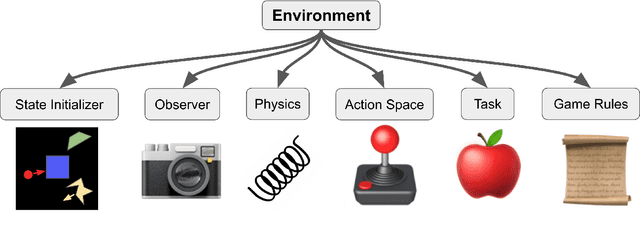Modular Object-Oriented Games: A Task Framework for Reinforcement Learning, Psychology, and Neuroscience
Paper and Code
Feb 25, 2021

In recent years, trends towards studying simulated games have gained momentum in the fields of artificial intelligence, cognitive science, psychology, and neuroscience. The intersections of these fields have also grown recently, as researchers increasing study such games using both artificial agents and human or animal subjects. However, implementing games can be a time-consuming endeavor and may require a researcher to grapple with complex codebases that are not easily customized. Furthermore, interdisciplinary researchers studying some combination of artificial intelligence, human psychology, and animal neurophysiology face additional challenges, because existing platforms are designed for only one of these domains. Here we introduce Modular Object-Oriented Games, a Python task framework that is lightweight, flexible, customizable, and designed for use by machine learning, psychology, and neurophysiology researchers.
 Add to Chrome
Add to Chrome Add to Firefox
Add to Firefox Add to Edge
Add to Edge